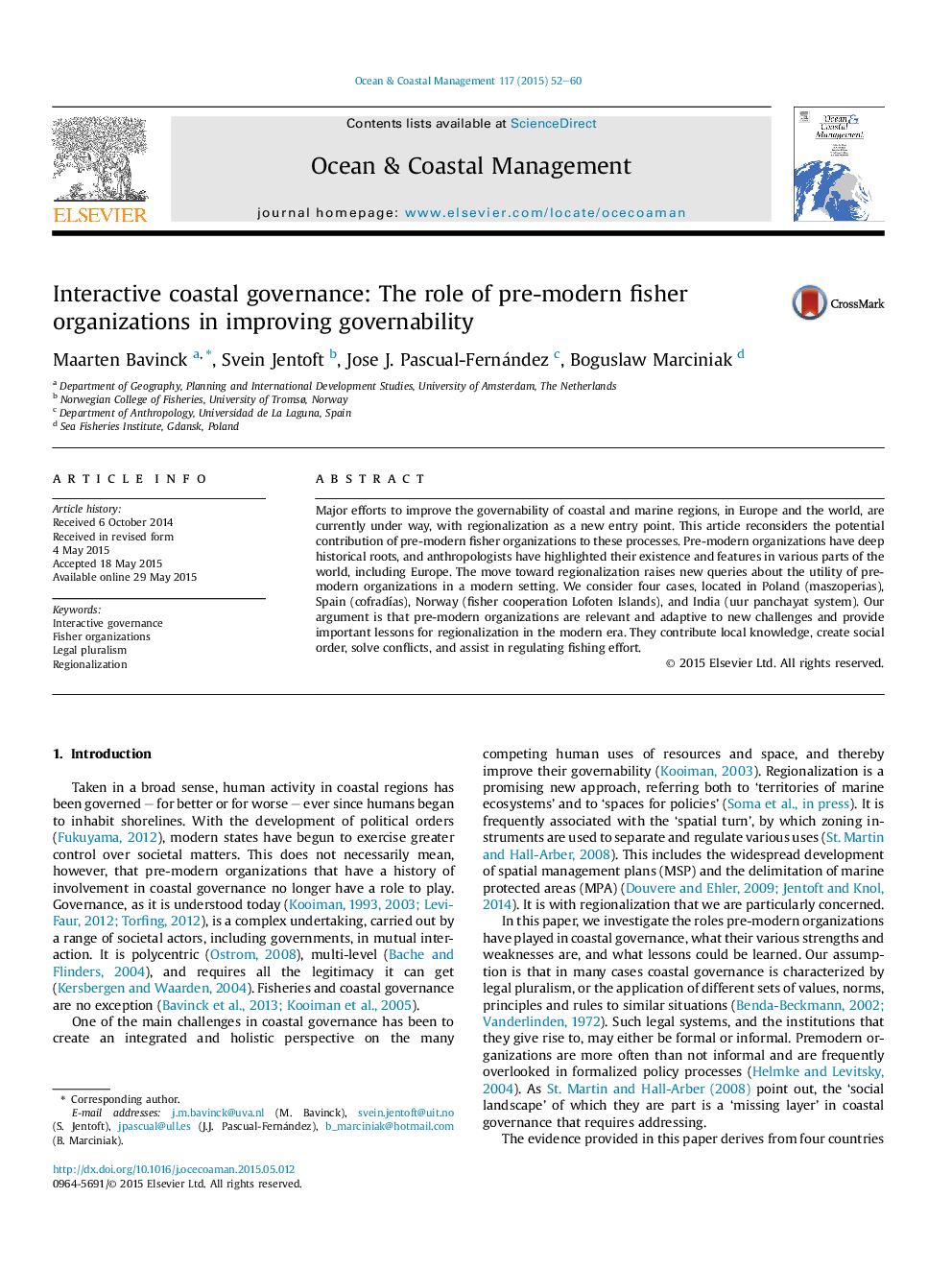| Article ID | Journal | Published Year | Pages | File Type |
|---|---|---|---|---|
| 1723451 | Ocean & Coastal Management | 2015 | 9 Pages |
•We compare four pre-modern organizations and their contribution to coastal governance in four countries.•Coastal governance is frequently characterized by legal pluralism.•Pre-modern organizations constitute a ‘missing layer’ to be included in regionalization.•Cofradías (Spain), Maszoperias (Poland), fisher committees (Lofoten) and Uur Panchayats (India) are examples of strong pre-modern organizations.•The main challenge is to bridge the gap between pre-modern and modern organizations.
Major efforts to improve the governability of coastal and marine regions, in Europe and the world, are currently under way, with regionalization as a new entry point. This article reconsiders the potential contribution of pre-modern fisher organizations to these processes. Pre-modern organizations have deep historical roots, and anthropologists have highlighted their existence and features in various parts of the world, including Europe. The move toward regionalization raises new queries about the utility of pre-modern organizations in a modern setting. We consider four cases, located in Poland (maszoperias), Spain (cofradías), Norway (fisher cooperation Lofoten Islands), and India (uur panchayat system). Our argument is that pre-modern organizations are relevant and adaptive to new challenges and provide important lessons for regionalization in the modern era. They contribute local knowledge, create social order, solve conflicts, and assist in regulating fishing effort.
